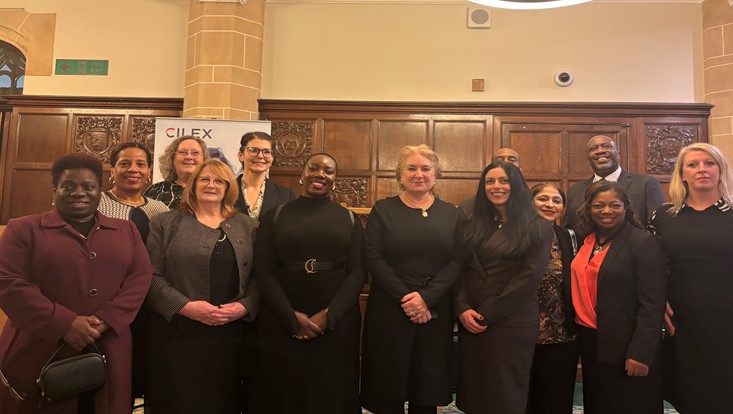
The Lady Chief Justice Dame Sue Carr launched the CILEX Judicial Academy last week at a ceremony in the Supreme Court. Greeting the first cohort of students, due to begin the programme in January, Lady Carr said: ‘This is a great initiative that will contribute to increasing the pool of eligible talent for judicial appointment.
‘I am encouraged by the content that includes mentoring, professional development, confidence building as well as advocacy skills. Candidates promise to be well equipped should they proceed to judicial application, and I look forward to welcoming this flourishing talent to the judicial family.
‘I would encourage all young legal professionals to consider a future judicial career.’
Applicants must be a CILEX lawyer, solicitor or barrister with at least five years' post-qualification experience. The academy aims to bridge the gap between legal practice and the attributes required for a judicial role, and will provide applicants with career coaching and mentoring from as early as five years before they begin the application process. The 18-24-month programme is structured around four key pillars—mindset, networking, personal development and advocacy—and includes one-on-one sessions with a career coach, access to a judge mentor, insight into the range of judicial positions available and networking opportunities. Candidates will also be supported to carry out relevant pro bono work and non-executive and trustee positions.
The programme feeds into the existing Pre-application judicial education programme, which launched in 2019 and supports candidates once they are ready to apply for a judicial role.
Rebecca Morgan, a CILEX Advocate at Admiral Law, who will begin the programme in January, said: ‘We are faced with several hurdles to navigate before reaching the application stage, and although there are many sources of information and schemes to help along the way, this programme streamlines the support into one singular place and offers fantastic networking opportunities.’
CILEX president Yanthé Richardson said: ‘We believe that this bespoke development programme will provide those who are often overlooked with the opportunity to demonstrate why they will be an asset to the profession and, crucially, begin the application process with confidence. There are 18 CILEX judges and we look forward to seeing more alumni follow in their footsteps.’






.tmb-mov69x69.jpg?sfvrsn=16d9dd3d_1)


